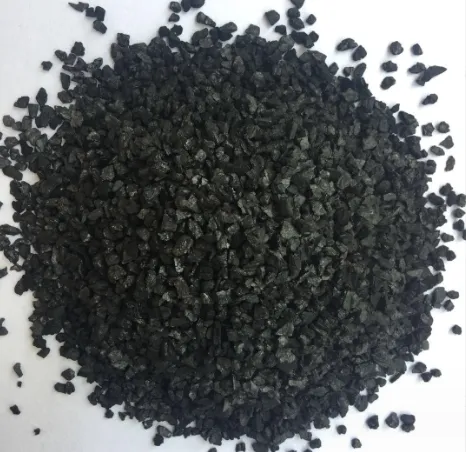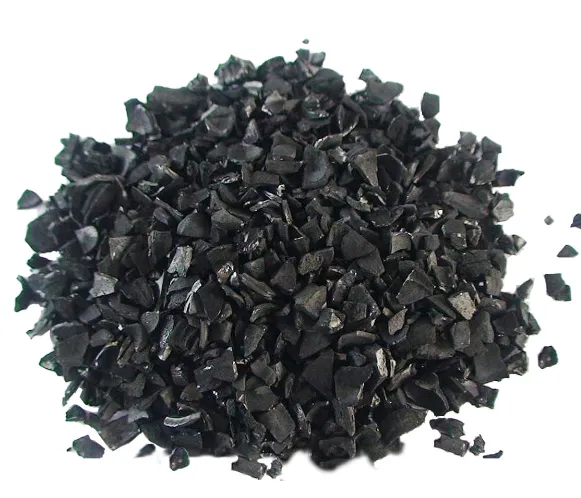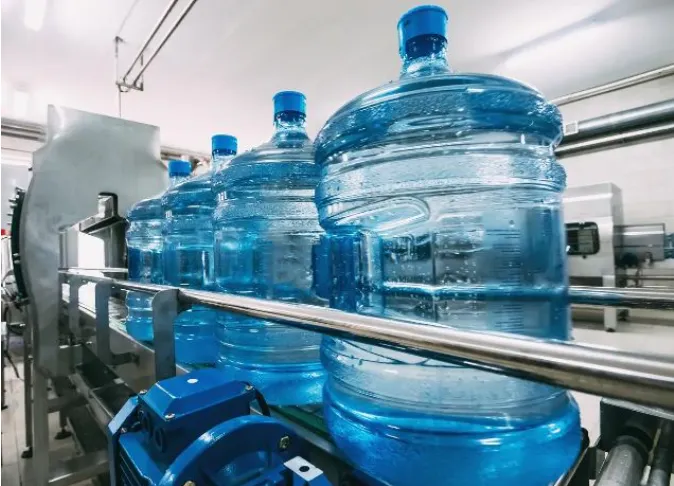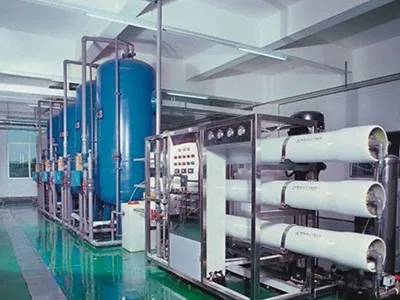Characteristics of granular activated carbon
Common granular activated carbon is made from high-grade anthracite coal as its raw material and undergoes sophisticated processing with cutting-edge technology. It exhibits a black, amorphous particle form, boasting a well-developed pore structure, excellent adsorption capabilities, superior mechanical strength, ease of repeated regeneration, and low cost. It is widely utilized for purifying toxic gases, treating waste gas, purifying industrial and domestic drinking water, and recovering solvents, among other applications.


Granular activated carbon, renowned for its high specific surface area, developed pore structure, and superior adsorption capabilities, serves as a highly effective porous adsorbent. Owing to its exceptional physical and chemical stability, granular activated carbon has gained widespread application in water treatment. It proficiently eliminates organic matter, chlorine, odor, color, and other contaminants from water, thereby enhancing its overall quality. By adsorbing and eliminating diverse pollutants present in water, granular activated carbon ensures the purity and safety of tap water, making it suitable for domestic and industrial use.

Removing Organic Matter and Disinfection By-Products
The water source of waterworks typically contains various organic substances. When these organic substances undergo chlorination disinfection, they produce a range of disinfection by-products, including trihalomethanes and haloacetic acids. These by-products pose significant health risks to humans. Fortunately, granular activated carbon exhibits remarkable absorption capabilities, effectively adsorbing organic matter in water and reducing its concentration. This, in turn, minimizes the formation of disinfection by-products. Additionally, granular activated carbon can also adsorb residual chlorine in the water, further mitigating the production of chlorine disinfection by-products. By leveraging its exceptional adsorption properties, granular activated carbon plays a crucial role in enhancing the safety and quality of tap water.

Removing Odor and Color
Tap water sources often contain various odor and color substances, which can significantly impact the sensory experience of the water. Granular activated carbon excels at decolorization and odor removal, effectively enhancing the sensory qualities of tap water and improving the overall drinking experience for users.
Removing Heavy Metal Ions
Water sources may also contain harmful heavy metal ions such as lead, mercury, and cadmium. These ions pose significant health risks to humans. Fortunately, granular activated carbon demonstrates strong adsorption capabilities for heavy metal ions, effectively eliminating them from the water, reducing their concentration, and minimizing potential harm to the human body.
Biological Pretreatment
Granular activated carbon is frequently utilized in biological pretreatment processes. Its adsorption capabilities enhance the biodegradability of water, creating optimal conditions for subsequent biological treatment processes. By adsorbing organic matter and suspended solids, granular activated carbon creates a favorable environment for microorganism growth, thereby improving the effectivenessof biological treatment.
In tap water treatment, granular activated carbon is a common component of filtration systems. As water passes through the granular activated carbon bed, pollutants are adsorbed onto the carbon's surface, allowing clean water to flow through. This significantly improves the quality of tap water.
As a water treatment agent, granular activated carbon offers the advantages of simplicity in operation and high adsorption efficiency. However, maintaining its adsorption performance requires regular replacement or regeneration, posing challenges in terms of cost and operational management.
With the constant evolution of technology, individuals' expectations for the quality of tap water are escalating. The utilization of granular activated carbon in tap water treatment holds immense potential for further advancements and innovations, aimed at fulfilling these escalating water quality standards.
As a crucial agent in the tap water treatment process, granular activated carbon occupies a pivotal position in ensuring the safety and purity of water. Its exceptional adsorption capabilities render tap water clearer, purer, and odor-free after treatment, thus fulfilling people's aspirations for high-quality drinking water.

 EN
EN
























